Getting Out There
I haven’t written a post here since December, and for that I apologize. I did, however, have an absolutely glorious 5 week holiday that included time in Australia, New Zealand and South Korea.
Since coming back though, I’ve been fortunate enough to pull off a few successful promotions for my novel What Dark Passages.
The first was an author signing session at Murchies. For those who aren’t familiar, Murchies is a chain of stores that sells tea and coffee and some locations – the one I was at included – have cafe’s in them as well. I worked out a deal with management where we bundled the book with two small boxes of tea – Library and Editor’s Blend – for the package price of $19.99. I was there for 5 hours on a Saturday, normally a busy time. However the weather decided to be stupendously good and the mall ended up being rather dead. That’s ok, though, because I still managed to sell 8 books. Even though I’m not a social person, I did enjoy talking to people about the book and it made me more than a little happy every time someone bought one.
The second was a bit of a surprise. The Mrs has been sending emails out to various local newspapers and morning shows since November and one finally replied. A reporter for the New Westminster NewsLeader emailed back asking for more information. After exchanging a few emails, we set up a meeting.
In a lot of ways, that meeting was a surreal experience. I thought to myself “There is a reporter here. Interviewing me. For the newspaper. About something I did. Wow!”. I don’t mean this in an egoist way, because I don’t. I mean it in a sort of ‘holy crap someone is interested in a nobody like me’ kind of way. Just shock and a whole lot of apprehension at putting even a tiny part of myself into a spotlight for others to see.
The end result was this story.
A few notes about the story/picture.
– Yes, those are socks sticking out from my jeans. I really didn’t think my feet would be in the picture so I didn’t bother putting shoes on. Next time (if there is a next time!), I’ll put shoes on regardless.
– He took a few liberties in the article. For example, I knew I was going to self-publish right from the beginning, and never applied to any publishers. I’m pretty sure the ‘sting of rejection’ was added for dramatic flair. But it isn’t factual.
– I wonder about some of my wording. Like editing a book, I wish I could tweak the dialogue to make sure it’s just right. I don’t think it’s necessarily bad, but I think I could have done better.
Overall I’m really happy with the story and it was super cool to see my face on the cover of our local newspaper! Especially on Wednesday when I sat down on my 5:30am bus, looked over, and saw my face plastered on the page and a guy reading the article about me. One of those moments I’ll remember for a long time.
Fighting the Urge
Now that What Dark Passages is available on Amazon both in ebook and paperback, I’m afflicted by a powerful compulsion to constantly check the sales graph.
I clearly remember seeing the first ebook sale on the Kindle Direct Publishing reports graph. I knew exactly who bought it, but it still resulted in a rush of excitement. It’s happening, I’m selling my book! Then the second one sold. I knew who that was too, and it still felt just as good. The feeling was addictive.
Now I wake up in the morning – did I sell anything last night? Go on break at work – any new sales? Get home from work – I wonder if I have any sales in the last 3 hours? You get the idea. It’s become one of those ‘a watched pot never boils’ kind of situations.
Taken in context, my overall sales haven’t been bad, but checking every couple hours definitely isn’t healthy. Every time I log in and see no change I feel a small burst of sadness. It’s probably not rational, but it is there all the same. Those small bursts can add up to the point where they overshadow the accomplishment.
So I’m fighting the urge to check. It’s been hard, but I’ve reduced my sales checks from 4 or 5 times a day down to 1 a day. I’m feeling a lot more relaxed about it. The sales will come when they come, regardless how often I look.
1 Year Anniversary and Big Announcement!
For my 1 Year Blogiversary I have something special to say:
I’m happy to announce my novel, What Dark Passages, is now available for purchase worldwide on Amazon. (!!!!!!!!!!!!!)
It is currently available only as an Ebook, but a paperback edition is forthcoming (and I will be dedicating a blog post to that process).
I’d like to send out a huge thanks to everyone who has taken the time to read my little corner of the internet and hey, if you’re so inclined, you can now find me on Amazon. Go take a look :).
More Book Covers!
I received a lot of great feedback on my last post (Thanks everyone!) and spent the last few days creating some new mock-ups.
Option #4 was the overall winner last time, receiving far and away the most votes. I kept that one, with a few modifications: I darkened the red and changed the font size and adjusted the word locations on the page a bit.
As for the new covers, I made a few using blue as the title cover instead of red. The reason is thematic. Through the novel, depression is a major theme, and depression is often linked to the colour blue. When I did my initial mock-ups a month or two ago, I nixed blue because I didn’t think it jumped from the page enough, but with the changes I’ve made to font, font size, and word location I think I could get away with it now. I still have red as an option as well, it is still easier to see and there are themes of anger in the novel as well, and yes, there is blood. Not a lot, but it’s there.
I also switched my name from the bottom to the top and moved the title to the bottom. I like this idea because my name can fit into that convenient dark spot above the light at the end of the alley and the title and sit on top of the ground. I also tried switching from a sans serif to a serif font. You’ll notice between the last two options my name dramatically decreases in size, yet in spite of that, it stands out better than it did before.
And so, here are the 5 new options.
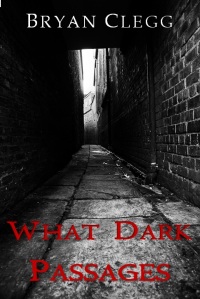
Option 5: Same fonts as the previous two, title centered on bottom on two lines. I really like these fonts. Is it just me or does the title stand out *slightly* better on the previous option? It’s pretty close.
Remember to let me know what you all think, and thanks for looking!
P.S. I just realized I didn’t cut/paste the images perfectly so there are white lines in some cases. My apologies. I made the files in MS Word and since WordPress won’t upload Word or PDF files as images, I print screen/pasted the images into MS Paint and made jpegs. Feel free to ignore those ugly white lines :).
Book Covers!
Today I’d like to talk about book covers. I’ve been working on mine off and on for the last few months and I think I’m close to deciding on a final version.
When I started thinking about what I wanted to do for the cover, I didn’t have a lot of ideas. All I really knew was I wanted it to feel dark and moody, something that suited my novel title, What Dark Passages, as well as the content within.
So I began to scour stock photo websites looking for an image I could use. Not wanting to do anything illegal, I made sure that I only searched images with explicit open licences or ones where a licence could be purchased. There are a lot of options out there, both for paid and for free. Finally, after searching through what seemed like thousands of images, I came across one that evoked exactly the kind of feeling I wanted: a dark alley filled with shadows.
This is the original image:
Pretty cool right? After finding the image, I set about making the cover. I won’t get into the steps here, as there are a number of helpful sites out there that cover those (I used them), and it was surprisingly easy!
The next step was to try and find a cool font for the title and my name. A lot of guides I found online recommended against using the stock fonts in Word, something I definitely agree with. Word is great, but the fonts included can be…lacking in emotion.
A few dozen downloads later, I had a series of options. Once again, I had to check the licence info for every download and for anyone else using fonts I recommend you read up on it too. Some websites may host a font for free, but don’t actually have the right to distribute it. The best place to ensure you have the right to use a font is to get it directly from the source.
Next up was playing with where to place those fonts, what size to make them, and what colours to use. I experimented with a white font for the title but realized that simply wouldn’t work, as I wanted the title to be at the top and name at the bottom.
The white light at the end of the alley negates any attempt to use a white font for the title. I needed to pick a colour that would stand out. Red was the obvious choice. Eventually I came up with a series of covers, some I like, some I don’t. I’ve decided to post them all here for your perusal. Here they are:
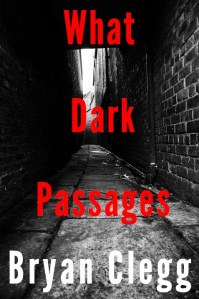
Option 2 – Decided to spread the title over three layers. The alley light isn’t as much of a problem as I feared, but it still interferes with the ‘a’ in Dark a bit.
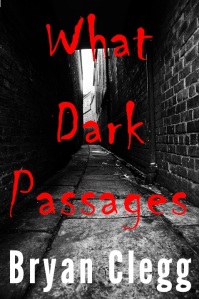
Option 3 – This one seems to work really well. I don’t think the light is a problem, and I kind of like the messy writing. Almost looks bloody.
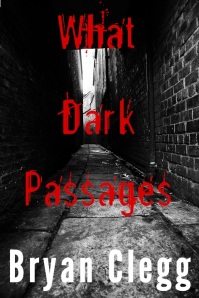
Option 5 – Darkened the red by about 30 points to get out any orangish hue, also added a slight dark to light gradient. Font is cleaner than the other messy one, but still has similar elements. Probably my front runner.
And there you have it – 5 different cover options, ending with my current favourite. Feel free to let me know which ones you like (or don’t like) and why.
A.A. and Intellectual Property
While writing my book, What Dark Passages, there was a point where I was going to reference a song. It was going to be something just in passing, a character singing the lyrics at work. But right before I started typing, I had a feeling I should check if I was allowed to quote those lyrics.
Turns out, I wasn’t. If I wanted to quote lyrics, I was going to have to get permission. So I cut the reference down to a simple ‘she sang this song, people laughed at her’.
Whew, dodged a bullet there.
Unfortunately, my research skills failed me later.
In the course of the novel, one of my primary point-of-view characters, Richard, goes to Alcoholics Anonymous. I downloaded various freely available pamphlets and information about A.A. and did all sorts of research to make sure I was portraying it as accurately as possible. On the pamphlets and booklets, I didn’t find anything copyright related, so I thought it was ok.
My editor, however, knew better (thankfully!).
Turns out A.A. has an intellectual property policy that states I’m only allowed to freely use their material if I am a member of A.A. writing material specifically for A.A.. Otherwise, I need to get permission from their IP Policy group.
I’ve been in contact with them and, at this point, I’m still hopeful I’ll be able to get this ironed out before my planned release next month. If the approval takes too long, however, (or if they flat out say ‘no’), I’ll be forced to remove the quotes and rewrite those sections. Not something I want to do.
So let this be a lesson to always double, triple, and quadruple check for relevant IP policy anytime you ever want to quote something when writing!
Finding and Selecting an Editor
I’ve reached the stage of my self-publishing saga where I need to find an editor. And, like most things, it’s turned out to be more complex than expected.
I have a few qualities I am looking for in an editor. First, I want someone who is interested in the genre of book I’ve written. Getting a children’s book editor to copy-edit a psychological literary fiction isn’t necessarily going to be a good fit. You would prefer someone with experience in your genre. So that’s my first qualification. Second, I would like to find someone that either lives in, or has spent time in, the Vancouver area. A lot of my scenes are based on real locations in the area and I think it would be useful to have someone familiar with the actual location to give input on my descriptions.
Initially, I went to the BC branch of the Editors Association of Canada (EAC) for my search. They have an online directory of editors where you can input some specific qualities and it spits out a list. I did this, and picked out 3 editors who looked like they’d be up my alley. I sent them emails and awaited their replies. I received responses and, unfortunately, all of them were booked up. However, one editor was kind enough to direct me to another resource listed on the EAC webpage that I’d managed to overlook – the BC Editors Hotline.
So the gist of it is: I email the hotline my request and key information about my project, the hotline coordinator sends the request out to all of the members, and anyone interested is free to respond to my post.
I didn’t know what to expect with my post, but the response was far greater than expected. I received 18 emails within a day and a half. Yay! People are interested!
So I set about the task of separating out the editors who sounded interesting to me and the ones who did not. Cutting the list down was easy to begin with. Three people spelt my name wrong. My name! How could I ever trust an editor who can’t even spell my name correctly in the email they send asking me to hire them. It’s not like it wasn’t right there in the hotline post, right above the email address which, by the way, also includes my name.
Boom, down to 15.
Next up was availability. I posted the date I aim to have the manuscript back by, but a few folks still put their hats in the ring for a later date. I’m ok with that, and if anything changes they could move up the list, but as is their ranking dropped relative to those who were more likely to complete the editing in the timeframe I need it by.
Next – experience. Some people directed me to websites, others listed relevant experience in their email. I tried to pick out the ones who looked like they’d worked on a similar genre. That relates back to the first quality I posted above.
Then there is attitude – in a tight field of what looks to be really skilled people, I turned to this. Some emails were very business-like, and that’s ok. Other’s seemed downright friendly and genuinely interested. I like kind people, so I gravitated to these emails.
In a related note – I was disappointed with one individual in particular. I’m not going to name names of course, but I just want to point out that I’m not a fan of overly pushy or rude people. I’m certainly not going to work with someone who makes me feel uncomfortable just by reading their emails.
Finally – price. One of the most important and hardest things to talk about is price. It’s like when you negotiate a salary with a possibly new employer – it’s a little awkward. At the end of the day, it doesn’t matter how much I like someone if I can’t afford them. And the range of quotes I received has been nothing short of surprising. The lowest quote was $650USD, while the highest was up to $3700CAD. That’s a huge range! And the worst thing is, based off what I’d heard at the self-publishing seminar I attended earlier this year, I was expecting to pay around $600CAD. Basically, I wasn’t ready for how high the quotes would be, and my bank account wasn’t either.
That said, I slowly whittled the list down from 18 to 3. And last night I made my final decision. It wasn’t easy, and I’m really dreading contacting the people I didn’t choose to give them the bad news. I would probably be a terrible manager – I hate giving people bad news. And I hope they all know I appreciate their time and understanding.
But I’m looking forward to getting this done. Judging from the samples I received, this editing is going to be huge for helping polish my novel and ensuring it looks as professional as possible. And that is something that, in the long run, will pay for itself.
Bad Habits
As I go through the editing process on my novel, I’ve noticed I have a number of bad habits in my writing. This isn’t surprising, everyone has bad habits, both professionals and amateurs.
For example – I’m reading a novel by a favourite author of mine, Steven Erikson. He’s published over a dozen novels and, in my opinion, they range from great to amazing. But I noticed something recently that surprised me – he has a habit of writing run-on sentences. On some pages, I found paragraph long sentences broken up by a half dozen commas!
Now, I don’t want to insinuate he’s a bad writer or I’m better than him in any way, because A. I think he’s amazing, and B. I could only dream of writing like he does. I just think that, in the grand scheme of things, littering your books with paragraph long sentences probably qualifies as a bad habit.
I have a lot of bad habits. I managed to pick some up on my own during re-reading, the rest had to be pointed out by my beta-readers. Here are some of my most common problems:
- I overuse the word “just”. I just can’t help myself. I cut my usage in half during editing.
- There was over 130 uses of “there was”. I’ve trimmed it down to less than 20.
- It seemed to be ok at first, but I also realized I overuse “seemed to”. I had over 70 instances, and it’s been trimmed down to less than 10.
- “That” is a generally extraneous word that I kept typing when I didn’t need to.
The good news is the above problems are easily fixed. Whoever came up with the ‘Find’ command deserves a giant hug. Seriously.
There were other problems, of course. I had a few sections where I was telling instead of showing, so I ended up writing in entirely new scenes to compensate. Those kinds of problems take a lot more time and effort to tackle, but they’re worth fixing.
What about my readers? Do any of you have bad habits in your writing?
Managing Expectations
At the recommendation of a fellow writer (Can I say “fellow writer” when I haven’t even published anything yet?), I’ve taken some time away from my draft of What Dark Passages. This way, when I get back to it I’ll be refreshed and, hopefully, be able to edit it with a clear mind and fresh eyes. This also nicely coincides with the period where I’m waiting for my various beta readers to get back to me.
I have, though, had plenty of time to consider my expectations for this book.
As a Psychological Literary Fiction (PLF), What Dark Passages is a niche book. By nature of its content, there just isn’t a huge audience for it. There are 2,059 PLF novels currently listed on Amazon.com. In comparison, there are 178,436 Romance novels. On one hand, I have less competition to get noticed, but on the other, supply tends to come from demand.
Another knock would be the fact that this is a standalone novel. The story is self-contained. There never was, and never will be, a planned sequel. The reason this becomes a problem for sales is that there is nothing to generate interest in the future. With a series, every time you release a book down the line you generate interest in the previous installments. With a standalone book, it is a lot harder to maintain interest/sales over time. I’m not saying it is impossible, look at Stephen King. But he is an exception, not a norm.
Where does this leave me with regards to What Dark Passages? I would like to think it is a good, quality read that people will enjoy. I would like to think it says something meaningful, and will make people stop and think about how they, and people around them, are affected by traumatic events. In my wilder dreams, I would even like to think that a bold individual will take the plunge on my book, like it as much as I do, then tell his or her friends about it, then they tell their friends, and so on until it becomes a bestseller.
If any of these things came true, I think it would be amazing. But at the same time I need to base my expectations in reality. And the reality is that the odds of me becoming a bestselling author that sleeps on a bed of money are bad. Really bad. Consider: Print-On-Demand (POD) services are all the rage amongst self-publishers. POD services produce millions of books a year for thousands of authors. But what does that actually equate to? >200. The average author sells less than 200 printed copies of his/her book. And considering the slim profit margin on a physical copy, that’s not very good.
How about e-books? Profit margins are a heck of a lot higher and e-book sales continue to go through the roof. A cursory search on the internet, however, indicates that an average e-book generates less than $300 in profit per year. And because it is an average, that number is nicely buoyed by the few very successful authors out there. Meaning most authors will make much less.
What does this all mean? It means I was delusional, or woefully misinformed, if I got into this thinking I was going to get rich. But that was never the plan. As fun as it is to imagine getting rich, I know how unrealistic and incredibly unlikely that is. Even making back the cost of an editor tips towards the unlikely side of the scale.
So I’ve banished thoughts of money and profit. Truth is, it doesn’t really belong here. Don’t get me wrong, I’m still going to do everything I can to share and promote the book as much as possible, but I won’t be doing it because of some vague expectation of getting wealthy. I’ll be doing it because I’m proud of what I wrote and want to share it with the world.
The money, if it comes, is just a bonus.
Name, Genre, and Finding Betas
The last time we talked, I provided a list of steps that I needed to take to get my book ready to publish. Since then, I’ve trucked through the first few steps, but I may have gotten hung up on something I really didn’t expect.
First, we’ll talk about the small progress I’ve made.
The Name
The idea for this book came to me about 3 years ago. I had just finished writing a short story about a man lost at sea. I really liked the tone and wanted to explore those kinds of emotions in more depth. One night I was walking home from work and a plan began to coalesce in my mind. I wanted 3, maybe 4 characters. They would be struggling through major emotional upheaval, and I had a great climax in mind that would bring all their stories together. I even had two perfect characters I had created in the past, one from a prose-poem I had written in University, the other I had created while listening to a song by the band Bloodsimple. The story would essentially be about the darkness in our lives, so I called it: Darkness.
As the idea took shape and I began to work on an outline, the story became not just about our darkness, but about emotional recovery from traumatic events and dealing with our past. The name Darkness had always been meant as a placeholder, but as time went on it became harder to think of the book as anything else. I was attached to it, and the idea behind it, even though the book had outgrown my temporary title. One idea was to name it Through the Darkness, as a way to represent the emotional journey the characters take. But a quick search on Amazon.com revealed at least 3 other books with the same name, so I scrapped that one. Then my good friend Colin came up with an idea, and it sounded perfect. It represented exactly what I wanted, and a search on Amazon came up with zero other books with the same name. So barring any drastic changes during the editing process, I believe I’ve settled on a title.
I present to you: What Dark Passages
The Genre
Through this entire process, I never really thought about the genre. I just wrote the book I wanted to write without worrying about fitting it into a specific genre. Now that I have to classify it, though, I started to wonder just what exactly did I write?
I went to a couple websites that are supposed to help with classification. One of them does a short quiz. It listed my book as a Suspense Thriller. I laughed and moved on. Eventually I decided I would go to Amazon.com and search the categories to find out where mine fits. I figured if I could find similar style books, then that should be my genre, right?
After a while, I started to zero in on Literary Fiction. But I thought, if I’m selling my book on Amazon.com, I don’t want it to just be grouped in with 45,000 other books, I need to narrow it down even more. And within the remaining sub-categories I spied the word “Psychological”. I clicked it open and perused the available books and theme list. That’s when I knew I had found my genre.
Genre: Psychological Literary Fiction
Beta Readers
I have to admit, when I was coming up with the list of challenges I would face “Finding Beta Readers” wasn’t at the top of the list. I had this idea in my head where I would post my information in some of the various Beta Reader groups out there and helpful people would line up and everything would be just rosy. Unfortunately, I was overestimating the interest my work would garner…by a lot.
There could be any number of factors involved, of course. I tried to be very upfront with the mature nature of my novel, because I don’t want anyone surprised (in a bad way) by the content. Could that have scared people away? Or it’s possible I didn’t do a good enough job getting people interested. This weekend I wrote up a proper description, the type of thing you’d see on a website or on the back of a novel and added it to one of my posts. I’m hoping it helps.
I have other steps I can work on while I’m waiting for this to happen, but if I don’t find betas, it will eventually stall out the entire process. Impartial eyes are one of the most important aspects of editing, because as much as I trust and value the opinions of my close friends and family, it’s impossible for them to be completely unbiased.
So now I’m reaching out to the WordPress community. If you, or anyone you know, are interested in beta reading an 80,000 word Psychological Literary Fiction novel, give me a shout! It just so happens I have one right here. I may be biased, but I think it’s a pretty good read.
I can be reached at: journeyofawannabewriter@gmail.com
UPDATE 3/24/13 – One of the hardest things to have these days is patience. I was so excited to get my book out there that, I admit, I was feeling a little down at the initial lack of interested being beta readers. But if I’d had just a little more patience, I would have been writing a very different section. As of now I’ve had 4 different people contact me about being beta readers, so the ball is officially rolling and I’m excited for the feedback to start coming in!
Here’s the book blurb:
Alex’s parents died when he was eight. Since then, he’s been on the outside looking in, wondering what his life could have been…what it should have been. Now, crushed by unbearable loneliness, he looks toward one, final solution.
Melissa is tired of being a victim. She wants nothing more than to move on with her life. But she is still haunted by the man who attacked her outside a club five years ago. A man the police never found.
Richard is a paramedic who made a mistake that cost a little girl her life. Now, fresh off a lengthy suspension, he can’t avoid confronting the mistake he made. At the same time, his marriage is coming apart at the seams, and the only comfort he can find is at the bottom of a bottle.
Joel has made mistakes. Horrible mistakes. But turning the tables on his abusive father and putting a bullet through his hand isn’t one of them. Now his father, looking for revenge, has found him. There may never be redemption for Joel, but he has a family to worry about now, and he must protect them at all costs.
Next Steps
Finishing my draft felt great. It was like getting a monkey off my back that had been crashing cymbals on my head for years. I wanted to do this for so long, and now I’m finally done, right?
Not even close!
There are so many steps to go, the list is almost discouraging to look at. I’m a writer, a creative guy, this stuff isn’t really my bag, ya know? I avoid lists like I avoid fist-sized spiders. But it needs to be done. Lucky for me I have a partner who is good at lists, tasks, and getting the type of stuff done that I consider boring. That doesn’t mean she’s going to do it for me, it just means she’s going to harass me until I do it. This is a good thing because otherwise it would take me a lot longer to get these things done.
So how did I figure out the steps? I’m fortunate because I’ve been able to draw from two sources on where to go from here. First is the fantastic website IndiesUnlimited. They just published a piece called I’ve Written a Book, How Do I Publish It?. In it, they run through a sixteen step process on how to take your book from first draft to published book. The information here is absolutely invaluable.
I was also extremely lucky in that the Federation of BC Writers held a self-publishing fair just this last weekend at the Vancouver Public Library. Among the list of speakers was best-selling author Martin Crosbie, who gave a very positive and helpful talk about what has and hasn’t worked for him in the jungle that is Amazon.com.
So, what do I have to do? I present to you, not necessarily in order, my list:
- Confirm a name for the book.
- Figure out what genre it fits into.
- Write a short description/”elevator pitch”
- Second round of edits.
- Find beta readers, send book to them and await feedback.
- Edit from beta reader feedback, then send to new batch of beta readers.
- Edit again. If I’m happy at this point, find a copy-editor and send to him/her.
- Final round of editing. Should be finished at this point. Or should I send out Advanced Review Copies and do one last edit, if required?
- Create Amazon.com author page.
- Get an ISBN for both physical copy and ebook.
- Prepare ‘front matter’. Copyright.
- Figure out the front cover. What do I want it to look like? Hire someone to do it or do it myself?
- Do I want a barcode?
- Format. Can hire a professional formatter, or try and do it myself.
- Upload ebook, check formatting works. Order physical copy to review quality/format.
- Publish.
- Promote. Promote. Promote.
- Promote some more.
Whew. There we go. No problem.
I will, of course, provide semi-irregular updates on what’s happening as it happens, or sometime after it happens, as always. This is, without a doubt, the ‘not fun’ part of putting out a book. But it is absolutely essential, and I’m looking forward to getting through it and learning everything I need to know so that future books (I *do* plan to keep writing, you know) are easier to publish.
Like any process – the first time is always the hardest.
Setting and Details
Two important components of any novel are the setting and the details. Today I wanted to talk about them and how I approach these things in my writing.
When I say setting, I’m referring to location and atmosphere. This could refer to a city and the general feeling around it, or it could be something small like a back alley within that city – how do these things look, sound, smell, and feel? My novel takes place in Vancouver. This seems like an easy choice because I live in Vancouver, making location research much easier than anywhere else. But initially I was going to set the story in a sort of nameless New York.
Why was I going to do that? Because I liked the idea of a large, nameless city. That way it would be easier for people to identify with what’s happening and envision it as their own city. So I used New York as a template, but never used the name. I researched ambulances run by the fire department vs hospitals, local restaurants and even mapped out streets.
But the more I got into it, the more I disliked the idea. Google maps, street view, and images are amazing tools, but it’s still hard to describe a place if I haven’t really experienced it. So I switched to Vancouver and rewrote all of the sections that were too obviously based on New York. I think it was one of the best changes I could have made, because it made writing the rest of the book a lot easier and opened up more possibilities to develop immersive scenes.
Details are a part of the setting, the two are intrinsically linked, but they encompass much more. What makes them so important is they can make or break the suspension of belief in a novel. It’s like the glue that holds the narrative together. If I wrote a novel about programming, but couldn’t describe the difference between Java and Objective C, readers would get frustrated and not bother reading the rest, let alone recommend it to any of their friends.
One of my characters is a paramedic, so on a few occasions I need to write scenes where he’s doing paramedic-y things. Aside from watching episodes of Third Watch and searching Google, I needed to learn how to write these scenes with at least a passable degree of realism. So I got help. Fortunately, I have a friend who knows everything I needed to know and was willing to help (Thanks Alina!). With her assistance, I’ve been able to design two scenes that should come off as medically realistic. One of them is already written, the other is coming up.
There is also, in my opinion, a line that needs to be walked when it comes to incorporating these aspects in the writing. A few years ago I read a fantasy novel by an author who had a primary job making maps. The writing reflected his interest in geography with pages of extensive geographic descriptions. This, in my opinion, bogged down the narrative to an almost intolerable degree. The story itself was fine, but there was just too much description.
So, obviously, I don’t want to go overboard. But I also need to make sure I don’t go too far in the other direction. Sights, sounds, and smells are the little things that help pull a reader into a setting. A novel without description becomes barren and lifeless. So where does mine land? Hopefully right in the middle between too much and too little.
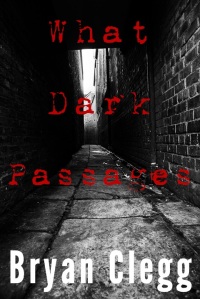
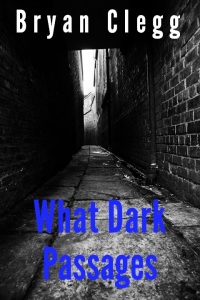
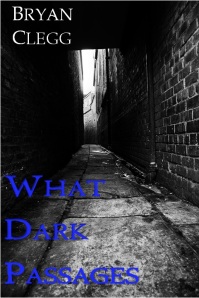
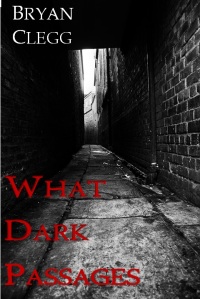

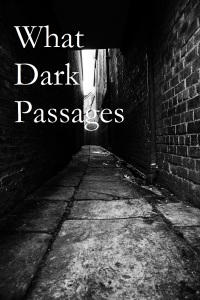
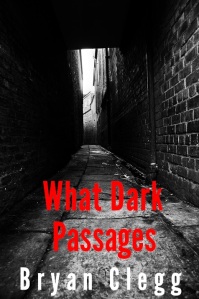
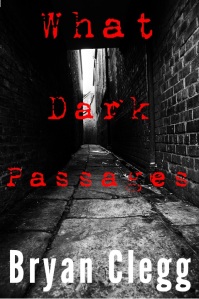
Recent Comments